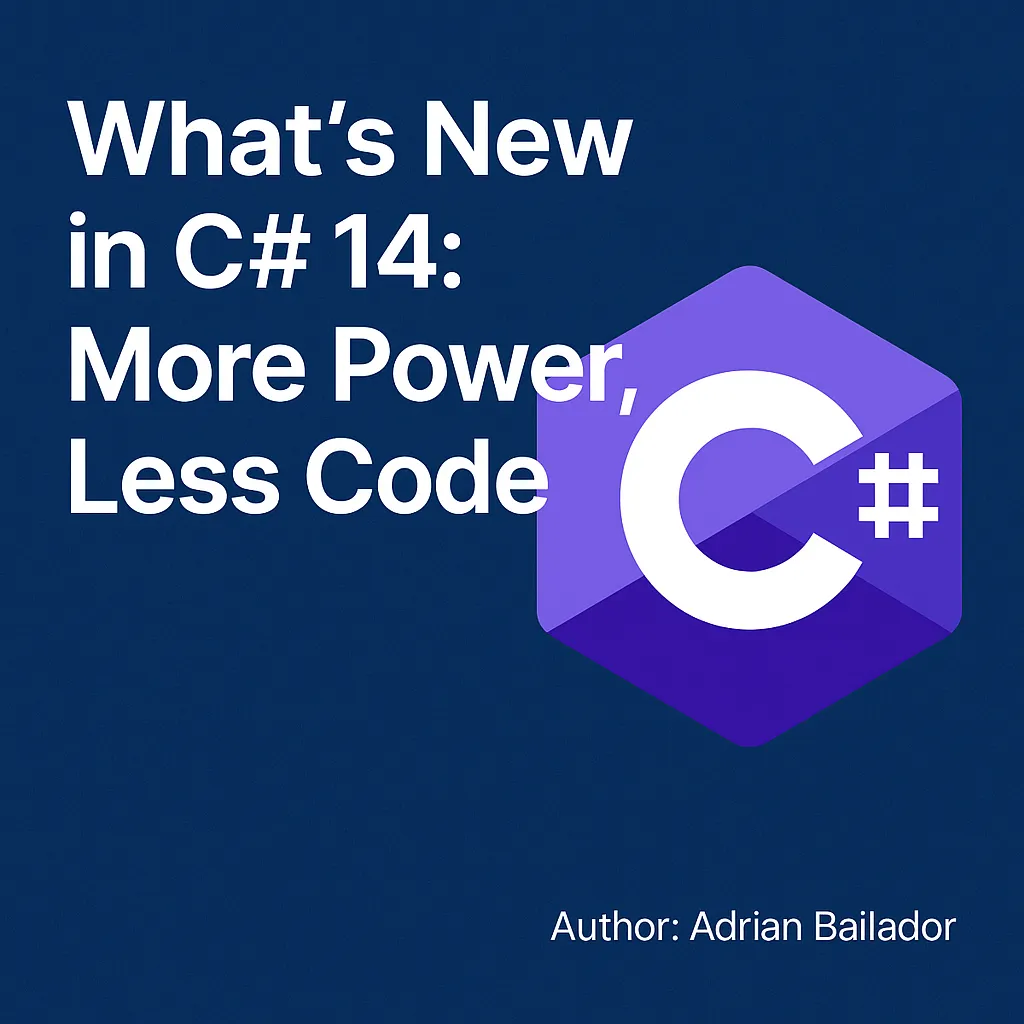
1. Extension Members: Beyond Extension Methods
C# 14 takes extension methods to the next level. You can now define properties, indexers and more within extension blocks, giving you more power to enhance existing types:
public static class EnumerableExtensions
{
extension<T>(IEnumerable<T> source)
{
public bool IsEmpty => !source.Any();
public T this[int index] => source.Skip(index).First();
}
}This is great for encapsulating reusable logic without touching the original type.
2. Improved Null-Conditional Assignment
The ??= operator gets an upgrade – it now works with more complex null-conditional expressions:
myObject?.Property ??= defaultValue;A clean and elegant way to assign values only when something is null, without needing if statements.
3. nameof Supports Open Generic Types
You can now get the name of an open generic type using nameof:
nameof(List<>); // Returns "List"Very handy for logging, code generation, or validation scenarios.
4. Better Support for Span<T> and ReadOnlySpan<T>
C# 14 expands implicit conversions between Span<T>, ReadOnlySpan<T>, and arrays (T[]), making high-performance memory operations safer and easier to work with.
5. Lambdas with Modifiers
Lambdas can now use modifiers like ref, out, in or scoped without needing explicit parameter types:
TryParse<int> parse = (text, out result) => int.TryParse(text, out result);This is especially useful with APIs that involve references or output parameters.
6. Accessing Auto-Property Backing Fields with field
A subtle but useful feature: you can now access the backing field of an auto-implemented property directly:
public string Message
{
get;
set => field = value ?? throw new ArgumentNullException(nameof(value));
}This allows you to add validation without having to declare a private field manually.
7. Partial Constructors and Events
The concept of partial members is expanding — you can now declare partial constructors and partial events. This is particularly useful in code generation scenarios or when working with partially generated classes.